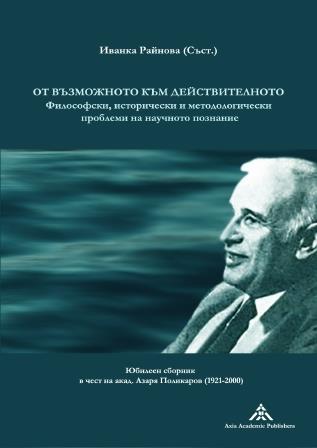Сътворение и/или еволюция: философски и естествено-научни аспекти, или апология на философския логос
Creation and/or evolution: philosophical and scientific aspects, or apology of the philosophical logos
Author(s): Stefan Penov
Subject(s): Philosophy, History of Philosophy, Philosophy of Religion
Published by: Axia Academic Publishers
Keywords: Hegel; Whitehead; religion; scientific knowledge; creationism; materialism; naïve realism
Summary/Abstract: The main thesis of the author is that religion and science are the existential needs of the human spirit. But many see a contradiction between both. Where does it come from, and how can the original unity be restored? From the position of Hegel (Encyclopedia §1): “Philosophy and religion have as their subject the truth, and it is the truth in the highest sense of the word that God and He alone is truth." Further, both deal with the realm of the finite, nature and the human spirit, and their relationship to each other and to God as their truth. Science and religion have different fields of application, but they sort of illuminate the same objective reality from different points of view. Thus, they complement each other, they are not contradictory in themselves, but only in the scattered mind of the pragmatist, atheist thinkers, or the ignorance of the naive realist. And since man is created ontologically unified, he must find truth, peace and faith in the unity of his Self, which will lead him along the Path of Truth and Life. Religion and science can relate to each other as religious and secular, church and state, soul and body. The questions of creation and evolution are much more complex, and here are at least ten basic concepts between creationism and the materialist realism. More important is not whether there are developments and degrees of perfection in the world, but the question is: How has been constructed their determination and what are the causal links and interactions? All these problems are unsolvable without mastering and using the dialectical logic that began with Plato, but was created by Hegel and successfully interpreted and applied by Whitehead.
Book: От възможното към действителното
- Page Range: 261-285
- Page Count: 25
- Publication Year: 2022
- Language: Bulgarian
- Content File-PDF

